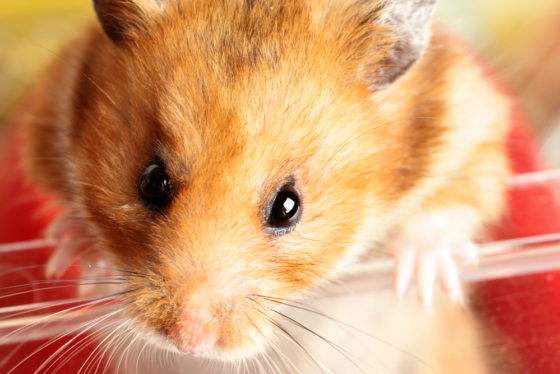Hong Kong officials try to track down Dutch hamsters – with Covid


The authorities in Hong Kong are anxious to trace the whereabouts of hamsters, reportedly imported from the Netherlands, which may be infected with coronavirus.
Some of the hamsters were sold at a pet shop whose owner has since been diagnosed with coronavirus, local media reported. Subsequent testing of the animals in the shop showed that eleven hamsters had the Delta variant.
Hong Kong has been virtually free of coronavirus infections in the last year because of stringent measures. People who purchased a hamster in the last three weeks have been urged not to cuddle the animal and call the ‘hamster hotline’ so it can be picked up and killed.
The other animals in the shop, which tested negative, were also put down. The cull order applies to all hamsters bought in Hong Kong since December 22, when a shipment of the animals arrived from the Netherlands. A second shipment arrived on January 7, the South China Morning Post said.
The Hong Kong health authorities said at a press conference that the virus may have jumped from the hamsters to people. ‘If you have a hamster, keep it indoors,’ health chief Leung Siu-fai said. ‘Don’t kiss your hamster.’
Hong Kong has now banned the sale of all hamsters and small rodents.
The transmissions of infectious disease from animal to human is not thought to contribute significantly to the spread of coronavirus although in the Netherlands infected mink may have passed the virus to workers.
‘We know that dogs, cats, ferrets and hamsters too can get coronavirus,’ a spokesman for the agriculture ministry told broadcaster NOS. ‘But so far that has not been shown to play a relevant role in coronavirus infections in humans.’
The ministry said it would liase with the Hong Kong authorities to verify the information and said it would involve the public health institute RIVM if the virus has made the jump from hamster to human.
According to the RIVM, Dutch research shows that most animals with coronavirus are infected by their owners and that their symptoms are generally mild.
Thank you for donating to DutchNews.nl.
We could not provide the Dutch News service, and keep it free of charge, without the generous support of our readers. Your donations allow us to report on issues you tell us matter, and provide you with a summary of the most important Dutch news each day.
Make a donation